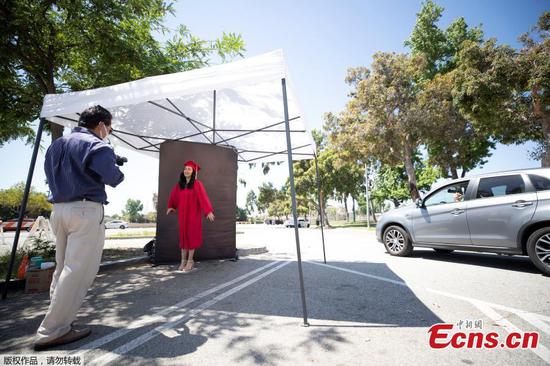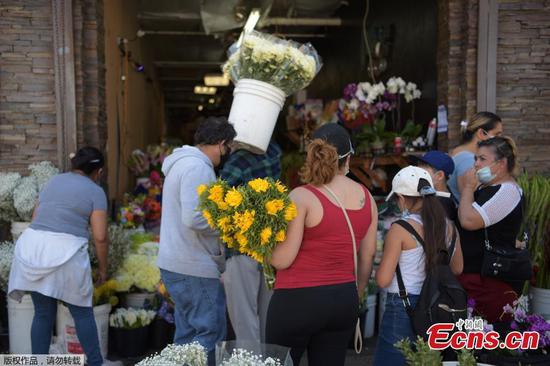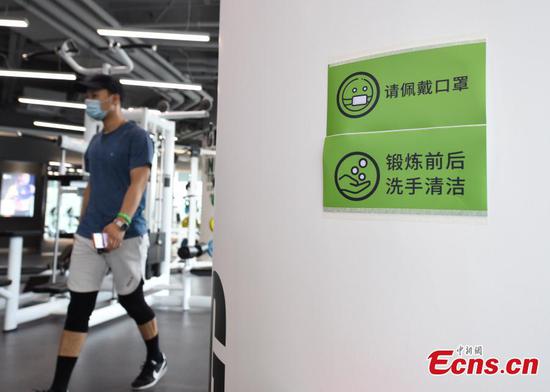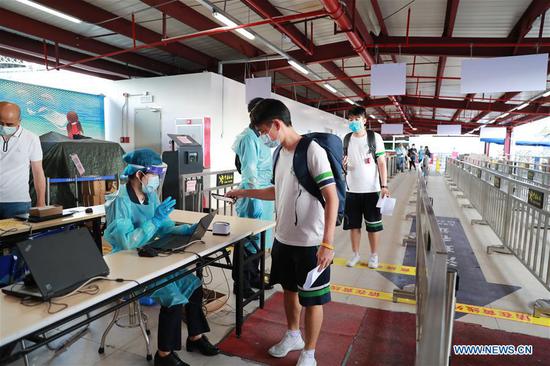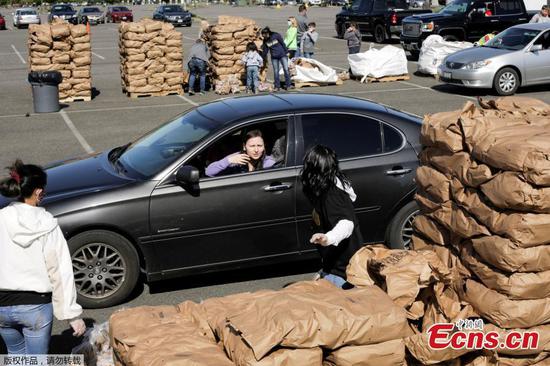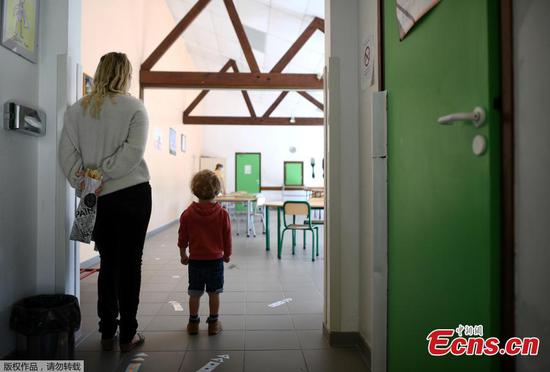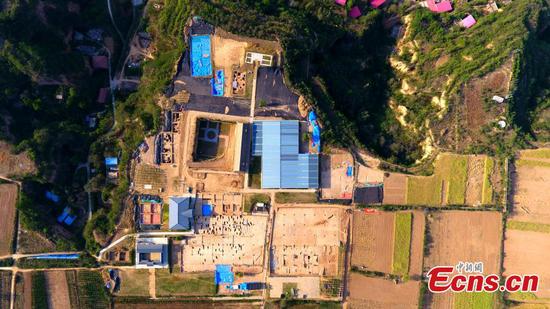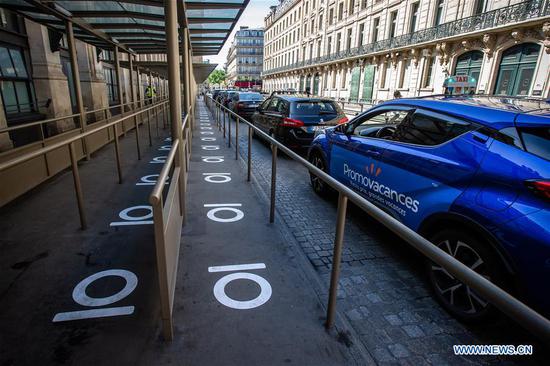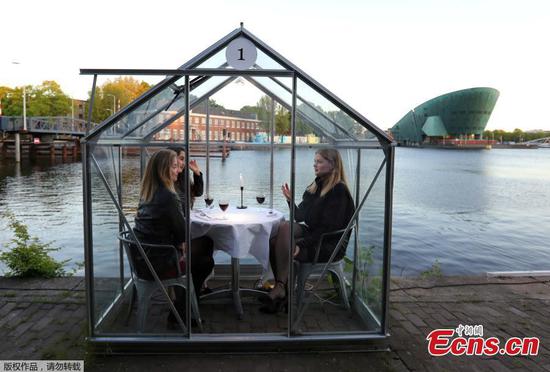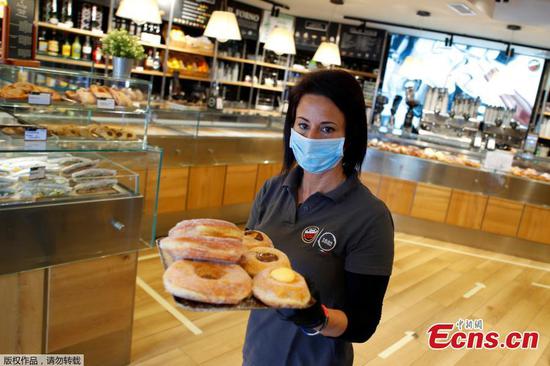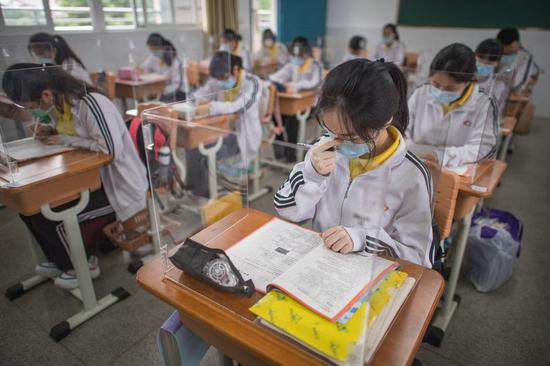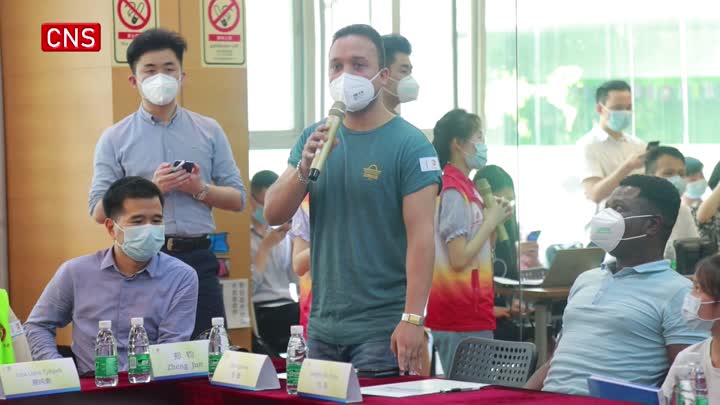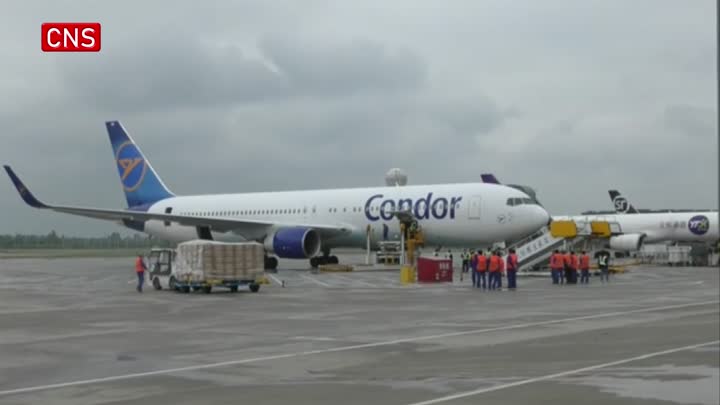As moves to ease lockdown measures commence across Europe, leaders are urging their populations to practice caution in the continuing battle against the novel coronavirus outbreak.
In Spain and Italy — the two worst hit European nations other than the United Kingdom — businesses are reopening and social restrictions are being relaxed.
Italy was the first country in Europe to impose a lockdown when COVID-19 cases began to surface in northern regions in February, and became the first country in the European Union to register more than 30,000 novel coronavirus-related deaths.
But one doctor has described the city of Milan as a "time bomb", according to Italian newspaper La Repubblica. Italy has the third-highest number of officially recorded COVID-19 deaths in the world, after the United States and the UK.
Italy imposed a strict and lengthy lockdown, with a ban on walking or exercising more than 200 meters away from home. In early May, some restrictions were relaxed and people are now able to travel for longer distances, as well as visit their relatives in small numbers. Visits to other regions of the country are still banned.
Spain outlined a four-stage plan on May 4 to start rolling back one of the strictest lockdowns in Europe, which saw children under age 14 confined to their homes for six weeks. Restrictions will be eased in two-week blocks until June 10, subject to review if cases spike.
Prime Minister Pedro Sanchez pleaded with Spain's citizens for "total caution and prudence" from those living in the regions where the lockdown will be loosened, adding that people should "take precautions as if they were infected".
The government says 51 percent of Spaniards will begin the so-called phase one of the transition from the lockdown on Monday, when restaurants and bars can serve clients outdoors, shops selling non-essential items can open without appointment and private gatherings of 10 people or fewer can be held.
In Germany, a report from the nation's public health agency on Saturday said the virus infection rate was rising. Official data from the Robert Koch Institute showed that just days after the country eased lockdown restrictions, the virus reproduction rate — the number of people each confirmed patient infects — is now above 1.
The lockdown in Germany will be in the hands of its 16 federal states, said Chancellor Angela Merkel, who last week stressed that an "emergency brake'' will be applied anywhere that sees a surge in new infections.
Shops are reopening, pupils will gradually return to class and the Bundesliga — Germany's top soccer league — will restart as soon as Saturday.
Close attention is being paid to a test program in Belgium, where every household can invite up to four guests to their home.
While announcing the nation's lockdown exit roadmap last week, Prime Minister Sophie Wilmes said two sets of four people make a "corona bubble", who can visit each other's homes, and that no one else is allowed into the domestic social circle.
The Guardian reported that epidemiologists advising the Belgium government chose the number four because it matches current capacity to do contact tracing if someone falls ill.
It said pairing two households also reduces the risk-multiplier effect.
France's strict lockdown was imposed on March 17 and residents were required to provide a travel permit justifying any trips outside. From Monday, those restrictions will be eased and after three weeks the situation will be reviewed.
In the Netherlands, Prime Minister Mark Rutte has unveiled a five-phase plan for easing lockdown restrictions that kicks in from Monday.
In Austria, one of the first countries to ease its lockdown, the health minister, Rudolf Anschober, last week said the reopening of small shops in the middle of April hasn't caused a spike in cases, with new infections increasing by just 0.2 percent. He said May would be the "decisive month".
In Ireland, a five-stage roadmap to reopen the country starts on May 18, with restrictions eased every three weeks.
Denmark, one of the first European countries to announce a lockdown, started to roll back measures in mid-April and is moving ahead with the second phase of its road map.
Greece has recorded one of the continent's lowest casualty rates, with 150 deaths and less than 2,700 confirmed cases after enforcement of tough measures to contain the epidemic early on.
The country recorded its first cases on Feb 26 and the Greek government acted swiftly to impose a lockdown. Rules were relaxed on April 28, when people were allowed to go outside for the first time without notifying local authorities.
Russia's outbreak is yet to peak and at least 10,000 new infections were reported daily last week. President Vladimir Putin has left it to local governors to decide on the best policy.










